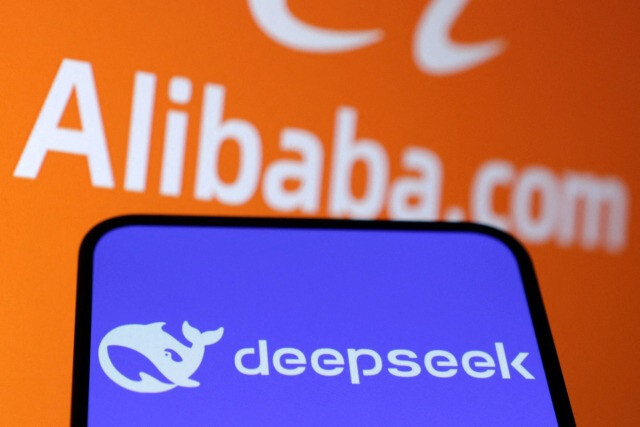
The reverberations of DeepSeek, a Chinese AI model delivering ChatGPT-level performance at a fraction of the cost, continue to shake the industry. Not to be outdone, Chinese tech giant Alibaba has unveiled its own AI model, boldly claiming to have surpassed OpenAI. This surge of Chinese AI, achieved through efficient design despite US restrictions on high-performance semiconductors, signals a growing AI arms race between the two global powers.
DeepSeek's AI inference model, R1, launched on January 20th, has demonstrated superior performance in certain benchmarks compared to OpenAI's inference model, o1. In a test of 500 mathematical problems, R1 achieved an accuracy rate of 97.3%, slightly exceeding o1's 96.4%. However, the real shock lies in the cost: R1's operational cost is a mere $2.19 per million tokens (the smallest units of text), a stark contrast to o1's $60. Inference models are AI systems designed to analyze complex problems and generate solutions.
DeepSeek's core strength lies in efficiency. While its model comprises 671 billion parameters, only 34 to 37 billion are activated during operation. Instead of relying on supervised learning, which requires manually curated data, DeepSeek employs reinforcement learning, enabling the AI to learn through trial and error. This approach significantly reduces computing and memory demands for inference.
The emergence of DeepSeek R1 challenges the prevailing notion that generative AI models require massive investments in high-performance chips. DeepSeek claims to have trained its new system with just $6 million worth of computing power, a fraction of the cost incurred by Meta for its latest AI model. Furthermore, R1 is lightweight enough to run on standard gaming GPUs, not just specialized AI server data centers. This development has sparked concerns about a potential decline in demand for high-end semiconductors, leading to a sharp drop in the stock prices of companies like Nvidia.
Following DeepSeek's lead, other Chinese AI companies have been showcasing their advancements since the beginning of the year. On January 29th, Alibaba launched its third-generation AI model, Qwen 2.5-Max, claiming it surpasses models from OpenAI, Meta, and DeepSeek. Alibaba boasts that the model's pre-training data exceeds 20 trillion tokens, positioning it as "the most advanced open-source AI model in the world."
ByteDance, the parent company of TikTok, also recently released an upgraded version of its flagship AI model, Doubao 1.5 Pro. The company asserts that the model outperformed OpenAI's o1 in the American Mathematics Competitions (AIME) benchmark, which measures mathematical abilities.
The US is watching these developments with concern. The US government has been actively restricting exports of high-performance AI chips from companies like Nvidia to China in an effort to curb the country's AI development. The H800 chip, reportedly used by DeepSeek to train its AI model, is a lower-spec version of Nvidia's high-performance H100 GPU, specifically designed for export to China. DeepSeek's success demonstrates its ability to overcome the limitations of less powerful chips through design optimization.
While several Chinese IT companies offer AI chatbot services based on their own large language models (LLMs), these services have primarily catered to the domestic market. However, DeepSeek is now venturing into the global arena by supporting foreign languages like English and Korean, providing not only inference results but also comprehensive public services. This marks a significant step towards international expansion. Additionally, DeepSeek's decision to open-source the code for R1, unlike the closed approach of OpenAI, could lead to rapid ecosystem growth.
Former US President Donald Trump acknowledged DeepSeek's emergence, stating, "I hope DeepSeek, a Chinese company, serves as a wake-up call that our industry needs to focus on competing to win."
Experts suggest that China's AI technology has reached a tipping point. Even before DeepSeek, China had been leading the world in AI patent filings and academic achievements. Lee Kyung-jeon, a professor of Big Data Applications at Kyung Hee University, noted the significant presence of Chinese researchers at international AI conferences, emphasizing the long-standing accumulation of AI expertise in China. He added that the rise of companies like DeepSeek, alongside established giants like Alibaba and Tencent, is a natural outcome of this accumulated knowledge.
However, concerns have been raised about the potential impact of this fierce competition on AI safety. Renowned AI scholar Yoshua Bengio expressed his worries in an interview with The Guardian, stating that this intensified competition may lead companies to prioritize speed over safety, potentially undermining efforts to ensure responsible AI development.
[Copyright (c) Global Economic Times. All Rights Reserved.]




























